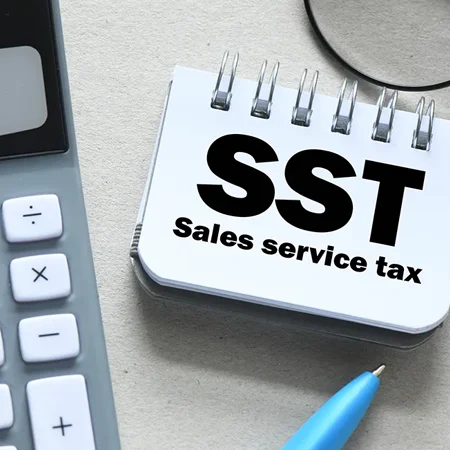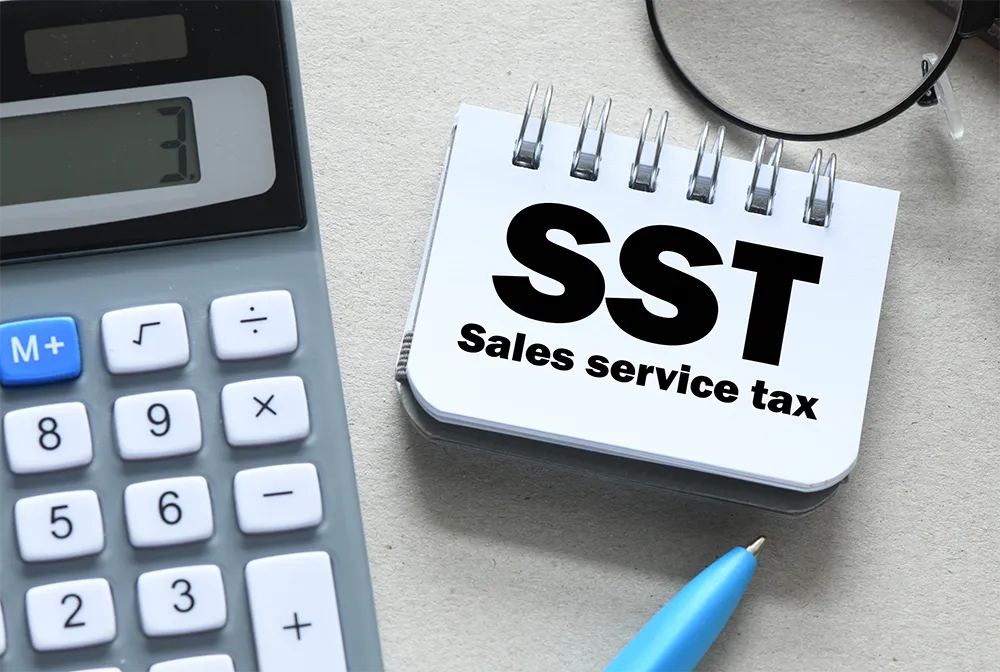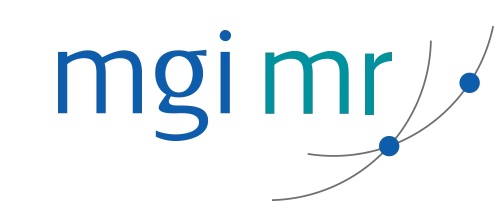
Blog
The Chequered Flag: Malaysia’s New Tax Terrain Has Arrived


The Chequered Flag: Malaysia’s New Tax Terrain Has Arrived
The race is over, the rules are live – now is the time to navigate wisely
Malaysia’s revised Sales and Service Tax (SST) framework officially comes into effect, marking a significant shift in the nation’s fiscal direction. Designed to strengthen the country’s economic resilience while preserving affordability for essential goods, the updated regime introduces a more structured and deliberate approach to taxation.
10% SST on Luxury Goods
Under the new regulations, luxury items—those that sparkle, roar, or glide on carbon fibre—are now subject to a 10% tax. This includes high-end categories such as fine jewellery, designer goods, premium electronics, racing bicycles, antique artwork, and bespoke tailoring.
Of particular note is the treatment of imported high-end bicycles. Malaysians returning from overseas with such items may face full taxation unless they can provide proof of local purchase. Customs authorities have made it clear: receipts are non-negotiable.
Triathletes and competitive cyclists have already reported experiencing unexpected tax implications upon re-entry, reinforcing the need for meticulous documentation when traveling with high-value items.
5% SST on Discretionary Goods
A separate 5% tax now applies to discretionary indulgences that, while not essential, enhance lifestyle quality. These include imported gourmet foods, fine chocolates, luxury textiles such as silk and cashmere, exotic fruits, and high-end home décor.
Consumers planning upscale dining experiences or considering luxury furnishings should factor in these changes at the point of purchase.
Expanded Scope of Services Tax
Perhaps the most transformative update lies in the broadened scope of the services tax, which now encompasses several new sectors. A breakdown is as follows:
| Sector | Tax Rate | Threshold | Notes |
| Financial Services | 8% | RM1 million | Fee/commission-based services taxed; basic banking remains exempt |
| Construction | 6% | RM1.5 million | Residential and infrastructure projects may be exempt |
| Private Healthcare | 6% | RM1.5 million | Malaysian-targeted services may be exempt; foreign patients are taxed |
| Private Education | 6% | RM1.5 million | High-fee institutions and non-Malaysians affected |
| Leasing & Rental | 8% | RM500,000 | Residential leases and small players exempt |
| Beauty & Wellness | 8% | RM500,000 | Includes spas, salons, and aesthetic services |
Thresholds that Protect Small Businesses
The updated framework introduces specific revenue thresholds to protect micro and small enterprises from being burdened by compliance obligations. For instance, financial advisors, leasing companies, and beauty service providers are only required to register for SST once annual revenues exceed RM1 million (or RM500,000 in some sectors). Larger industries, such as construction and healthcare, are subject to a higher RM1.5 million threshold.
These tiered thresholds ensure that essential services remain accessible while ensuring high-revenue businesses contribute proportionately. Residential rental and financial leases remain exempt, providing relief to landlords and tenants alike.
A grace period has been implemented, with no penalties for non-compliance issued until year-end—giving businesses ample time to adapt systems and procedures.
Intermediaries and Independent Agents: New Considerations
Independent brokers, agents, and intermediaries—particularly those offering fee-based financial advice or earning commissions—may now fall under the taxable umbrella of financial services. This includes professionals selling general insurance or non-life investment products. While premiums for life and medical insurance remain exempt, associated commissions may be taxable once turnover surpasses RM1 million.
Business operators without the backing of licensed financial institutions are advised to reassess their business models and consult the Royal Malaysian Customs Department to clarify compliance requirements.
What Businesses Should Do Next
As the revised SST framework comes into force, businesses are encouraged to take the following actions:
- Retailers should update POS systems and train staff to reflect the new pricing structures
- Consumers should reassess the timing of major purchases, especially for luxury or discretionary goods
- Travellers must carry valid proof of purchase for high-value personal items brought from abroad
- Service providers should evaluate whether their operations now fall under the taxable scope
This new tax terrain may be unfamiliar, but it is manageable with the right planning and guidance. Businesses that approach these changes proactively will be better positioned to adapt, remain compliant, and continue growing under the country’s evolving regulatory landscape.

